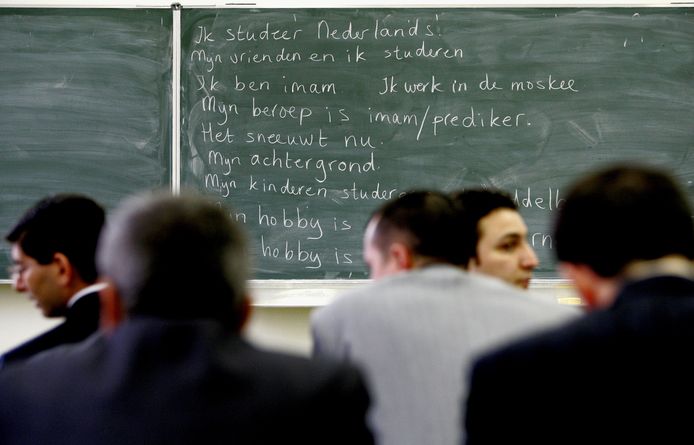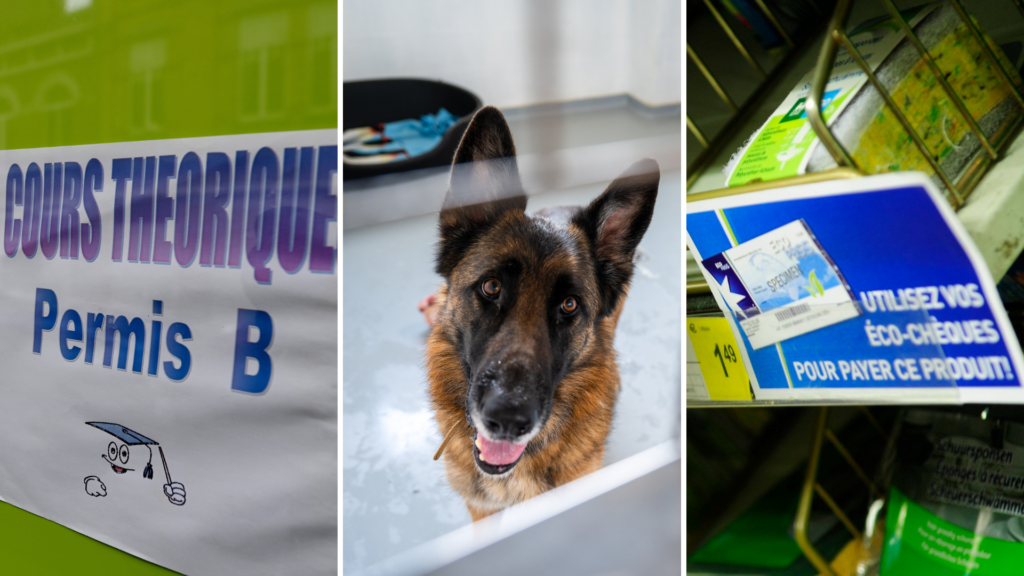The start of each month in Belgium comes with new laws and March sees a raft of regional and federal changes. From more difficult integration tests and more expensive driving tests to the expansion of eco-cheques, here's what's new today.
Extended use of eco cheques
From Wednesday, eco-cheques can be used to purchase more products. The extra-legal benefit given to employees in Belgium in addition to their salary is intended for products and services deemed environmental.
The vouchers can now also be used to buy large second-hand electrical appliances, such as lawnmowers or washing machines (excluding hybrid appliances that run on both electricity and fossil fuels). Until now, the vouchers could only be used for small appliances.
Similarly, all products with an FSC or PEFC label (that certifies sustainable forest management) will also be eligible for purchase with eco-vouchers, including products made of bamboo, natural rubber and wood and paper items.
Finally, it is now possible to pay for a parking space or subscription to a bicycle parking lot using the vouchers. The list of products and services is regularly updated according to market changes or ecological developments.
Limits on handcuffing minors
Minors can only be handcuffed by police when it is absolutely necessary and under certain specific conditions. The upcoming amendment was announced in the Official Gazette of the police service at the end of last year.
Belgian law previously made no distinction between adults and children for police handcuffing. Now, in recognition of the impact this can have on minors, the law has been adjusted so that from 1 March, minors can only be handcuffed when there is an acute danger of escape, if they are violent or resist arrest, when the minor is a danger to themselves or others, or when they attempt to destroy evidence.
A minor cannot be handcuffed for longer than necessary. The change brings Belgian legislation in line with the International Convention on the Rights of the Child, which states that the interests of the child must always be the first consideration in all measures that apply to them.
Changes specific to Flanders
Integration test
Since March 2022, non-EU citizens arriving in Flanders have had to sit a standardised exam at the end of their social orientation course.
The test consists of 41 questions, 11 of which deal with the basic fundamental values, including the topics of euthanasia, adoption and LGBTQ rights. There are 30 practical knowledge questions about Belgian society.

It will become harder for non-EU newcomers to pass the social orientation course test. Credit: Belga
Previously, half of the questions had to be answered correctly for people to pass; from Wednesday the pass rate will be raised: newcomers must score of 9 out of 11 on the "fundamental norms and values" section of the Flemish civic integration exam – bringing the pass grade to 82%.
Changes specific to Wallonia
Driving tests become more expensive
From 1 March, the price of a driving test for the A (motorbike), B (car) and G (agricultural vehicle) licences in Wallonia will be raised. This follows the test sector's calls for salary indexations and support with rising energy costs.
For the B licence, the theory test will rise from €15 to €16 and the practical test will rise from €36 to €40.
Related News
This is still less than in Belgium's other regions: the total cost of the practical and theory tests is €56 in Wallonia compared to €60 in Brussels and €65 in Flanders.
Yet the southern region is the only one to charge for the risk perception test (for which the price will also be increased from €15 to €16), bringing the total to €72.
The C (truck) and D (bus) licences are not affected, as their prices are automatically indexed each year.
License changes for animal centres
Finally, the licensing terms for animal establishments in Wallonia will change, despite protests from animal breeders.
This will see the minimum standards of accommodation increase: unless it is done for health reasons, animals may not be kept alone and must be able to benefit from the presence of another animal.
For dog and cat breeders, the decree reduces the number of litters per mother and sets a minimum and maximum age for pregnancies. A maximum of two different breeds is allowed per breeder.
Reforms will also provide more information to prospective buyers of animals (particularly about the animal's needs and specificities). Since July 2022, anyone wishing to buy or adopt a pet in Wallonia must also obtain a permit.

